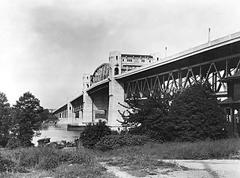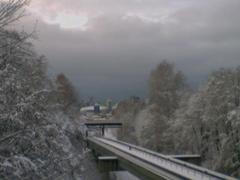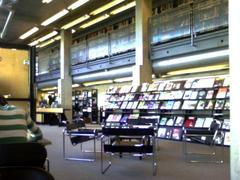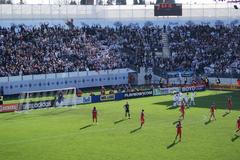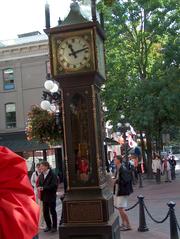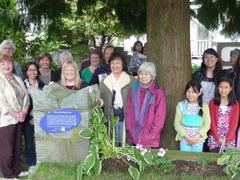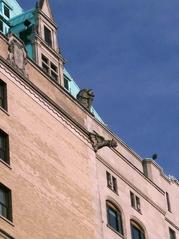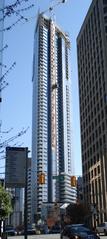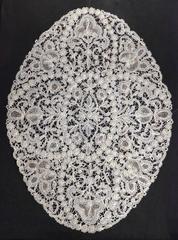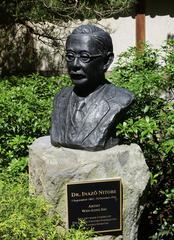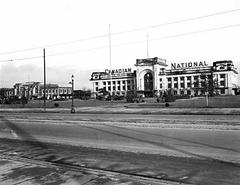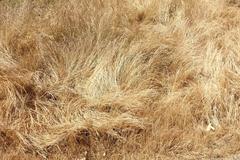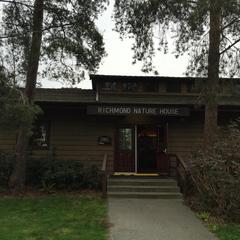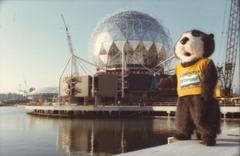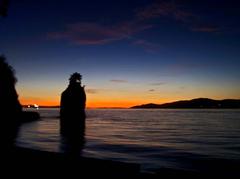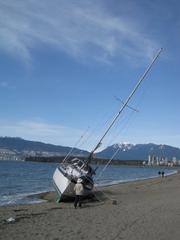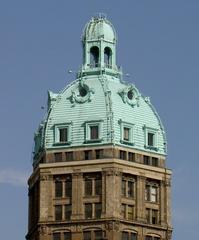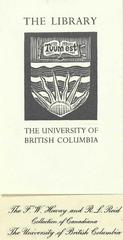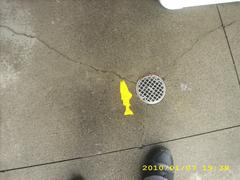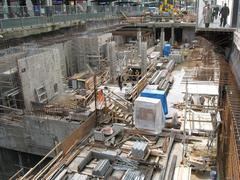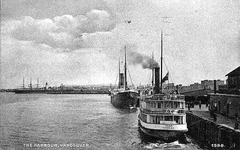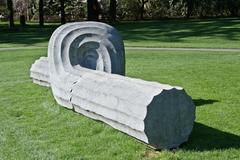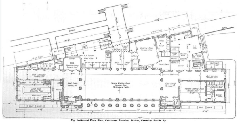May Wah Hotel Vancouver: Visiting Hours, Tickets, and Historical Guide
Date: 14/06/2025
Introduction
Situated at 258 East Pender Street in Vancouver’s storied Chinatown, the May Wah Hotel is an enduring symbol of Chinese Canadian heritage, community resilience, and architectural distinction. Established in 1913 and originally named The Loyal Hotel, this five-storey Neo-classical building was designed by William Frederick Gardiner. Over more than a century, it has served as affordable housing, a social hub, and a touchstone for cultural preservation in the face of adversity.
While the May Wah Hotel remains an active residential building and is not open for interior tours, its striking exterior and location in the heart of Chinatown make it a must-see for heritage enthusiasts. This guide provides a comprehensive overview of the hotel’s history, architectural features, visitor information, and its role within Vancouver’s cultural landscape (Vancouver Chinatown Foundation; Historic Study of the Society Buildings in Chinatown; VICE).
Table of Contents
- Overview and Visitor Information
- Historical and Architectural Significance
- Role in the Chinese Canadian Community
- Visiting the May Wah Hotel: Hours, Accessibility, and Tips
- Nearby Attractions and Experiences
- Frequently Asked Questions (FAQ)
- Visuals and Further Resources
- Conclusion & Visitor Recommendations
- Sources
Overview and Visitor Information
Location:
258 East Pender Street, Vancouver, BC V6A 1T7
Public Access:
- The May Wah Hotel is a private residential building.
- There are no public tours, ticketed entries, or interior access for visitors.
- The exterior can be viewed and photographed from the street at any time.
Nearby Transit:
- SkyTrain: Stadium–Chinatown Station (7-minute walk)
- Bus: Multiple routes serve East Pender and Main Street
- Walking: Easily accessible from downtown Vancouver
Accessibility:
- The exterior is street-accessible and pedestrian-friendly.
- The hotel itself is not equipped for public interior access or wheelchair entry.
Historical and Architectural Significance
Early Origins and Urban Context
Constructed in 1913, the May Wah Hotel was originally called The Loyal Hotel. Architect William Frederick Gardiner designed it in the Neo-classical style, using brick and granite to convey strength and permanence at a time when most Chinatown buildings were modest wooden structures (Historic Study of the Society Buildings in Chinatown, p. 25). The building’s granite stone cladding, six classical pilasters, and decorative cornices are hallmarks of its unique blend of Western and Chinese architectural influences.
Evolving Roles and Preservation
Initially serving Chinese male laborers affected by exclusionary immigration policies, the May Wah Hotel quickly became a vital support network. Its close association with community organizations, such as the Shon Yee Benevolent Association, solidified its status as a social and cultural nexus. Over the decades, the building survived various ownership changes and threats of redevelopment, most recently being preserved as affordable housing by the Vancouver Chinatown Foundation (Vancouver Chinatown Foundation).
Architectural Features
- Facade: Red brick with granite cladding and six imposing pilasters.
- Ornamentation: Classical cornices, dentils, and a prominent flagpole.
- Design: Recessed balconies reminiscent of southern Chinese town buildings.
- Layout: Originally mixed-use, with ground-floor commercial spaces and upper-level rooming accommodations.
Heritage Status
- Designation: Category B heritage building within a federally recognized historic district.
- Function: Continues as affordable housing for seniors and low-income residents.
- Community Impact: Acts as a model for heritage preservation and social inclusion (Historic Study, p. 48).
Role in the Chinese Canadian Community
Social and Cultural Hub
The May Wah Hotel has long been a sanctuary and meeting place for Chinese immigrants, especially during periods of exclusion and discrimination. The building fostered a “Bachelor Society”—communal living for men separated from families due to restrictive immigration laws. Its connection to benevolent associations provided residents with social support, legal aid, and cultural continuity (Historic Study, p. 41).
Multicultural Legacy and Community Resilience
While originally home to Chinese tenants, the hotel now houses a diverse group of seniors and low-income residents, reflecting the changing demographics of Vancouver’s Downtown Eastside. Preservation initiatives by community organizations continue to uphold the hotel’s legacy as a symbol of resilience and multiculturalism (VICE).
Visiting the May Wah Hotel: Hours, Accessibility, and Tips
Visiting Hours and Access
- Interior: No public tours; access restricted to residents.
- Exterior: Freely viewable from the street, ideal for daylight photography.
- Street-Level Businesses: Some ground-floor businesses, such as travel agencies, remain open to visitors during regular business hours.
Guided Tours
While the May Wah Hotel itself does not offer tours, several local organizations provide Chinatown walking tours that include the hotel as a key stop. These tours offer valuable historical and architectural insights.
Practical Tips
- Best Viewing: Early morning or late afternoon for optimal lighting.
- Photography: Respect resident privacy when photographing the facade.
- Respect: Always be considerate—this is a home for many long-term residents.
- Events: Check with the Vancouver Chinatown Foundation or local tourism sites for special events or walking tours.
Safety and Etiquette
- Neighborhood Context: Adjacent to the Downtown Eastside; exercise standard urban caution, especially at night.
- Cultural Sensitivity: Engage respectfully—English, Cantonese, and Mandarin are commonly spoken.
Nearby Attractions and Experiences
Chinatown is one of Vancouver’s most vibrant neighborhoods, offering plenty to explore within walking distance of the May Wah Hotel:
- Dr. Sun Yat-Sen Classical Chinese Garden
- Chinatown Millennium Gate
- Chinatown Storytelling Centre
- Chinese Canadian Museum
- Chinatown Night Market (seasonal)
- Gastown Historic District (Gastown)
Dining:
Chinatown features a variety of restaurants and cafes, such as Keto Caveman Cafe, Coqoudak, and Propaganda Coffee.
Frequently Asked Questions (FAQ)
Q: Can I tour the May Wah Hotel’s interior?
A: No. The building is private residential housing and not open to public tours.
Q: Are tickets required to visit the May Wah Hotel?
A: No tickets are needed to view the exterior. Some guided walking tours that include the hotel may require advance booking.
Q: Is the May Wah Hotel accessible for people with disabilities?
A: The exterior is street-accessible, but interior access is not available.
Q: What are the best times to visit or photograph the hotel?
A: Daytime hours (morning or late afternoon) are best for photography.
Q: Where can I find more information about Chinatown and heritage preservation?
A: Visit the Vancouver Chinatown Foundation, Tourism Vancouver, or the City of Vancouver’s heritage resources.
Visuals and Further Resources
- Images: Look for high-quality photos of the May Wah Hotel’s facade and surrounding Chinatown streetscapes on official heritage and tourism websites. Suggested alt text: “May Wah Hotel Vancouver heritage building exterior.”
- Maps: Interactive maps are available through local tourism platforms.
- Virtual Tours: Explore virtual resources provided by the Chinatown Storytelling Centre.
Conclusion & Visitor Recommendations
The May Wah Hotel stands as a living monument to Vancouver’s Chinese Canadian community—embodying both the struggles and triumphs of generations who have called Chinatown home. Its Neo-classical architecture, enduring role as affordable housing, and preserved facade offer a tangible connection to the city’s multicultural past.
While interior access is not available, the May Wah Hotel and its surroundings provide a meaningful experience for those interested in history, architecture, and cultural preservation. Visitors are encouraged to explore nearby attractions, participate in heritage walking tours, and support local preservation efforts. By respecting the residential nature of the building and engaging thoughtfully with the neighborhood, you contribute to the ongoing vitality of this cherished Vancouver landmark (Vancouver Chinatown Foundation; Historic Study of the Society Buildings in Chinatown; Tourism Vancouver).
Sources
- Vancouver Chinatown Foundation – The May Wah Hotel
- City of Vancouver – Historic Study of the Society Buildings in Chinatown
- VICE – Inside the Affordable Chinatown Haven That Narrowly Avoided Renoviction
- Tourism Vancouver – Chinatown
- Gastown
- Dr. Sun Yat-Sen Classical Chinese Garden
- Chinatown Millennium Gate
- Chinatown Storytelling Centre
- Chinese Canadian Museum
For more insights and audio guides on Vancouver’s heritage sites, download the Audiala app and follow us on social media for updates and local tips.

